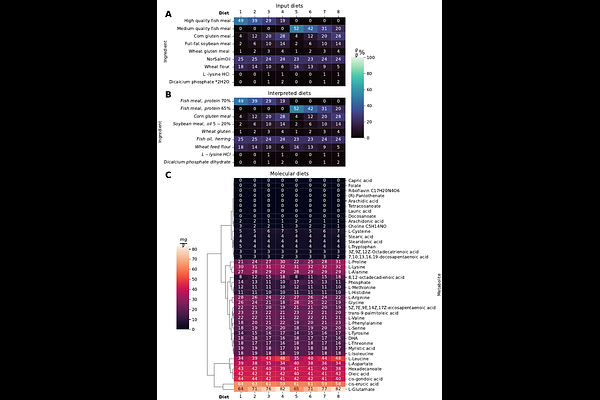Evaluating sustainable feeds for aquaculture by simulating Atlantic salmon lipid metabolism

Evaluating sustainable feeds for aquaculture by simulating Atlantic salmon lipid metabolism
Rotnes, F.; Vik, J. O.; Oyas, O.
AbstractAtlantic salmon aquaculture is an important food source globally, but its sustainability is challenged by environmental impacts and the nutritional demands of farmed fish, particularly regarding fatty acids. Salmon feeds still rely heavily on fish or soybean meal, posing sustainability concerns due to overfishing and carbon footprint. Innovations in feed composition seek to address these challenges by using more sustainable ingredients, but the impacts of alternative feeds on fish and the environment can be hard to quantify. Here, we developed a model with detailed and flexible accounting for lipids -- Simulated Salmon Lipid Metabolism (SimSaLipiM) -- to predict the nutritional and environmental outcomes of feed formulations. Integrating SimSaLipiM with feed ingredient databases enabled detailed analysis of an in vivo feed trial in silico. The model predicted optimal feed efficiency in agreement with observations, as well as a detailed energy budget and fish biomass lipid composition for each feed. We also used the model to formulate novel sustainable feeds and feed supplements by minimizing CO2 footprint. Thus, SimSaLipiM makes it easy to identify recipes that optimize key feed properties such as efficiency and environmental impacts. This could be a valuable tool for feed manufacturers, guiding the formulation of feeds that are both sustainable and cost-effective. By bridging the gap between feed formulation and the flexible growth and energy requirements of a fish, SimSaLipiM can contribute to advancing sustainable aquaculture.